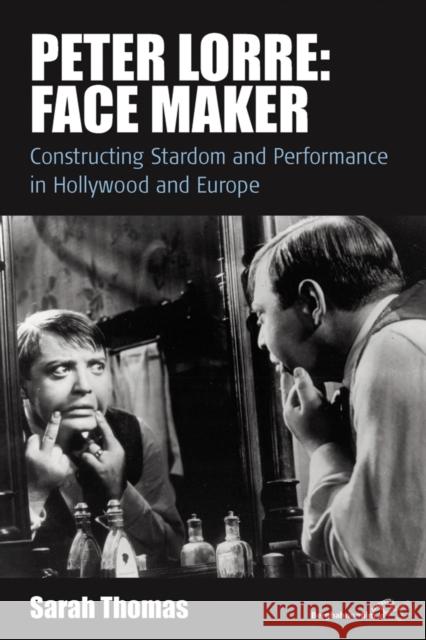Peter Lorre: Face Maker: Constructing Stardom and Performance in Hollywood and Europe » książka
Peter Lorre: Face Maker: Constructing Stardom and Performance in Hollywood and Europe
ISBN-13: 9780857454416 / Angielski / Twarda / 2012 / 222 str.
Peter Lorre: Face Maker: Constructing Stardom and Performance in Hollywood and Europe
ISBN-13: 9780857454416 / Angielski / Twarda / 2012 / 222 str.
(netto: 485,11 VAT: 5%)
Najniższa cena z 30 dni: 498,70
ok. 30 dni roboczych.
Darmowa dostawa!
The author has a sophisticated command of the material and the book is balanced, judicious and very thorough. In particular, the author explores aspects of Lorre's career that have been neglected or misunderstood: his "Mr. Moto" roles; his extensive work on radio and television; and the final phase of his film career working at AIP. Andrew Spicer, University of the West of England This book] makes a significant contribution to the existing literature on stardom and acting, with not only a useful reappraisal of Lorre's work and reputation but also with some valuable insights into the nature of "extra cinematic person," the interrelationship between radio and cinema during the studio era, and the significance of actor collaborations. This is a fascinating study of how misconceptions arise over time regarding an actor's persona and reputation. Martin Shingler, University of Sunderland Peter Lorre described himself as merely a 'face maker'. His own negative attitude also characterizes traditional perspectives which position Lorre as a tragic figure within film history: the promising European artist reduced to a Hollywood gimmick, unable to escape the murderous image of his role in Fritz Lang's M. This book shows that the life of Peter Lorre cannot be reduced to a series of simplistic oppositions. It reveals that, despite the limitations of his macabre star image, Lorre's screen performances were highly ambitious, and the terms of his employment were rarely restrictive. Lorre's career was a complex negotiation between transnational identity, Hollywood filmmaking practices, the ownership of star images and the mechanics of screen performance. Sarah Thomas is Lecturer in Film Studies at Aberystwyth University.
The author has a sophisticated command of the material and the book is balanced, judicious and very thorough. In particular, the author explores aspects of Lorres career that have been neglected or misunderstood: his "Mr. Moto" roles; his extensive work on radio and television; and the final phase of his film career working at AIP. Andrew Spicer, University of the West of England[This book] makes a significant contribution to the existing literature on stardom and acting, with not only a useful reappraisal of Lorres work and reputation but also with some valuable insights into the nature of "extra cinematic person," the interrelationship between radio and cinema during the studio era, and the significance of actor collaborations. This is a fascinating study of how misconceptions arise over time regarding an actors persona and reputation. Martin Shingler, University of SunderlandPeter Lorre described himself as merely a face maker. His own negative attitude also characterizes traditional perspectives which position Lorre as a tragic figure within film history: the promising European artist reduced to a Hollywood gimmick, unable to escape the murderous image of his role in Fritz Langs M. This book shows that the life of Peter Lorre cannot be reduced to a series of simplistic oppositions. It reveals that, despite the limitations of his macabre star image, Lorres screen performances were highly ambitious, and the terms of his employment were rarely restrictive. Lorres career was a complex negotiation between transnational identity, Hollywood filmmaking practices, the ownership of star images and the mechanics of screen performance.Sarah Thomas is Lecturer in Film Studies at Aberystwyth University.











